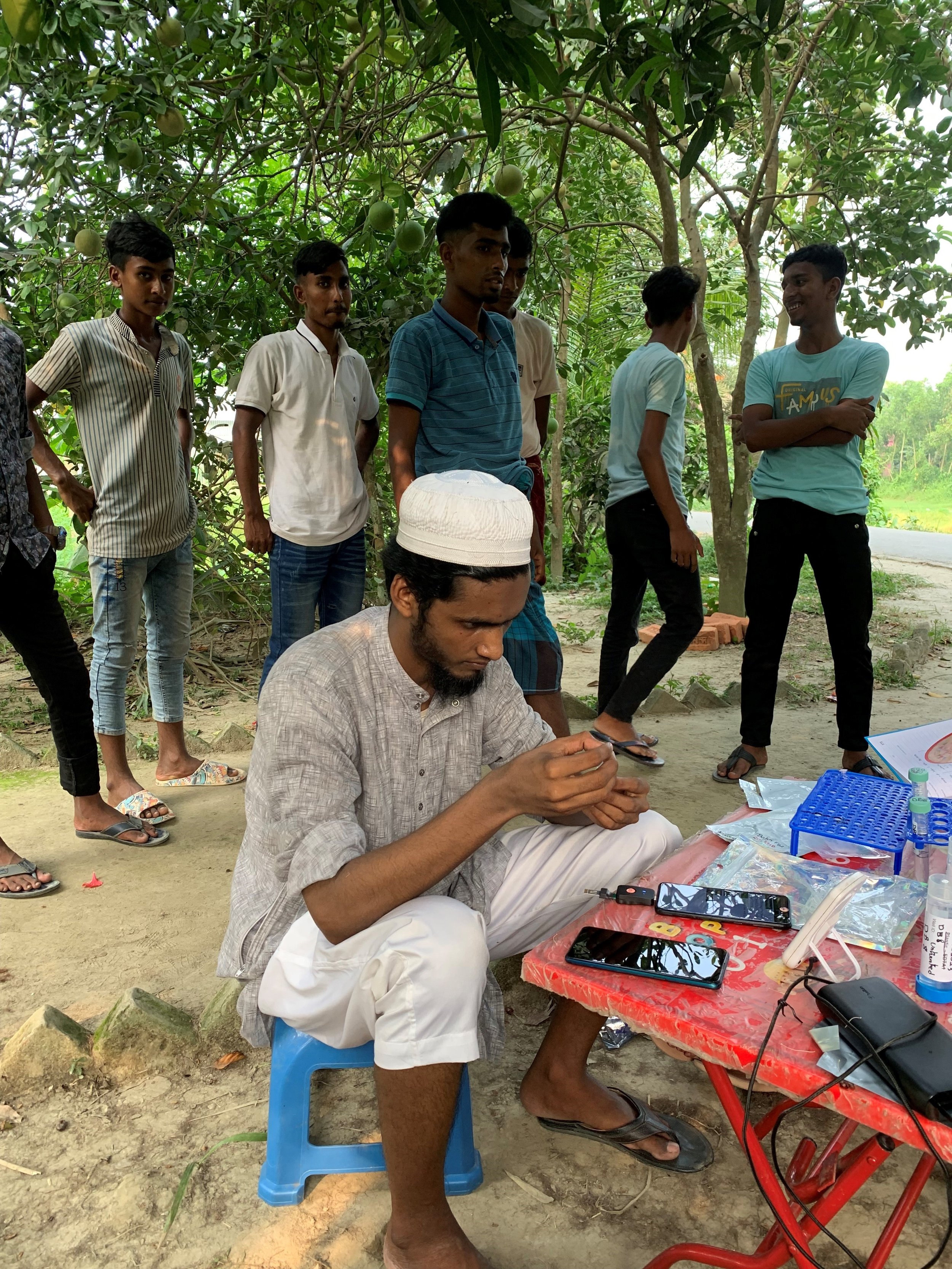
Arsenic Poisoning and the 4M’s (Measure-Map-Manage-Mitigate)
A Pilot project to demonstrate the first rapid, digital, cloud-connected test to measure and map arsenic levels in Bangladesh, enabling long-term arsenic management and mitigation strategies.
Problem
Arsenic contamination of groundwater in Bangladesh
Arsenic is a well-known natural toxic element that has a long history of being a poison to humans. Arsenic contamination of groundwater in Bangladesh is a severe public health concern. Indeed, the World Health Organisation (WHO) has called the problem of arsenic contamination of drinking water in Bangladesh “the largest mass poisoning of a population in history”. Naturally occurring arsenic affects 59 out of Bangladesh’s 64 districts (DFID, 2000), and in some villages, 90 per cent of the tubewells are unsafe, with few alternatives to groundwater.
Target Area & Beneficiaries
Naturally occurring arsenic affects 59 out of Bangladesh’s 64 districts (DFID, 2000), and in some villages, 90 per cent of the tube wells are unsafe, with few alternatives to groundwater.
AquAffirm-As™: world’s first web-connected real-time digital test for arsenic in drinking water
AquAffirm is developing the world’s first web-connected real-time digital test for arsenic in drinking water (Fig 2). This innovative test uses low-cost digital sensors in the form of test strips, digital reader, and Android smartphone (loaded with the AquAffirm app) for rapid measurement of this debilitating water contaminant. Together with its advanced mapping software and associated data analytics, AquAffirm has reimagined the way arsenic will be measured, mapped, managed, and mitigated.
Goal
The overarching goal of the project is to gather the evidence necessary to inform the Bangladeshi government of the importance of arsenic surveillance and mapping for policy and advocacy work.
Timing and Duration
Project will start in May 2023, with training of testers starting in September 2023 and field testing starting in October 2023; project will take 12 months, finishing in April 2024.
Approach
This project will be organised and managed in-country by a team from the University of Dhaka with the support of the technology developer (AquAffirm), DPHE, Hydroquo Plus (a Dhaka-based SME), and with financial support from Aqua for All and UNICEF.
Number of beneficiaries and impact (pilot)
In a pilot study testing 2000 wells (which is a change from the Teaser, see below) we estimate that we will directly reach approximately 22,000 people through this initiative, although the actual number benefitting will likely be considerably more.
The project’s objectives will be sustained through extension of this project to a major donor-sponsored arsenic mitigation program across Bangladesh – a program that will be designed to save hundreds of thousands of lives over the next ten years, giving a brighter future to millions.



